Pandemic Prisoner: Life of a COVID Positive – A Photo Essay

Adil Abass is a visual storyteller based in Kashmir. He…



 +11
+11 Pandemic Prisoner: Life of a COVID Positive – A Photo Essay
Pandemic Prisoner: Life of a COVID Positive – A Photo Essay
Pandemic Prisoner: Life of a COVID Positive – A Photo Essay
Pandemic Prisoner: Life of a COVID Positive – A Photo Essay
Pandemic Prisoner: Life of a COVID Positive – A Photo Essay
Pandemic Prisoner: Life of a COVID Positive – A Photo Essay
Pandemic Prisoner: Life of a COVID Positive – A Photo Essay
Pandemic Prisoner: Life of a COVID Positive – A Photo Essay
Pandemic Prisoner: Life of a COVID Positive – A Photo Essay
Pandemic Prisoner: Life of a COVID Positive – A Photo Essay
Pandemic Prisoner: Life of a COVID Positive – A Photo Essay
Pandemic Prisoner: Life of a COVID Positive – A Photo Essay
Pandemic Prisoner: Life of a COVID Positive – A Photo Essay
Pandemic Prisoner: Life of a COVID Positive – A Photo Essay
When contagion plagued the previous spring, a young Kashmiri photojournalist became part of the “untouchable” crowd inside an isolated ward where he experienced a close death encounter and decided to document his dreadful dungeon.
After covering blistering riots in Delhi, I was planning to come home when bogeyman grounded all the flights.
As someone coming from the strife-stricken region, I suddenly saw the mood shifting in India’s capital. The lockdown lords there would normally sit in the ivory towers and preside over the paralysis of my homeland. But now, as turmoil throttled the very choking centers with vengeance, it seemed chickens finally came home to roost.
As anxiety amplified, I received innumerable calls from the Kashmiri students and workers stuck in Delhi with little to no resource to survive and longing to return to their homes. Being a member of a Whatsapp group, Delhi Collective Relief, I served as a liaison between them and the sufferers. During that period, I saw a sense of deprivation among the Kashmiri students due to the lack of political representation.
Amid that mayhem, rumours of airport shutdown were flying thick and fast. But after my flight got cancelled, I instantly booked another flight from a different airline for May 1. Thankfully it didn’t get cancelled. The day finally arrived and I remember leaving for the journey with my cousin with whom I was staying in Delhi.
Upon reaching Kashmir airport, we were taken for sampling and testing. They took a swab from both of my nostrils. As I am a chronic case of Epistaxis, my right nostril got triggered and it bled so much so that my mask and a hankie got completely stained. It took a while to clot. They took our addresses and made us board a bus. The bus in which we were travelling had a convoy along. For that particular slot, we felt like dignitaries.
Support Our Journalism
You are reading this because you value quality and serious journalism.
But, serious journalism needs serious support. We need readers like you to support us and pay for making quality and independent journalism more vibrant.
We were taken to TRC (Transport Road Corporation). TRC was responsible for our accommodation till the results of the tests transpire. I headed towards a registration desk and talked about my accommodation at Zakura campus, a place some 6 to 7km away from my home. We were sent to the Zakura campus via cab and shifted to a separate room – 301 was allotted to both of us. We sat together, ate together and slept together.
The very next morning, my friend called and informed me that I am tested Covid positive. Thereupon I informed my cousin and he instantly left the room.

The test was done at SKIMS. I was being extremely skeptical and confirmed the test result once again. The situation had rendered me unmindful. I was clueless whether to inform my family or not? However, I mustered up the courage and revealed the news to my maternal aunt who’s quite close to me. She comforted me and took the responsibility of sharing the news with my parents.
Upon hearing the grim news my mother got anxious and worried. I could hear her weeping on call out of distress. It was shattering me. Amidst all the emotionally devastating situation, I gathered some strength to comfort my mother. My reassurance of being perfectly sound solaced her a great deal. I felt relieved.
On the contrary, my father imbued me with strength through his motivating words. All that while I received a lot of calls from close friends and my colleagues. One among them was from CID.

The sleuths inquired about my travel history and symptoms. I reassured that I am asymptomatic. After that, I was informed via a call that I would be taken to the hospital in an ambulance. I was in a state of uncertainty about how will I manage things all alone away from home. Anticipation, as it is rightly said, is worse than reality.
I was living the very fact, unaware of the things that were to occur next. It was raining outside on that day. The weather I had always fancied didn’t galvanize my mood even a little bit. I packed my bag and stepped out toward the ambulance that was waiting right there for me.
Spontaneity made its way and I started documenting my life as a covid positive patient and captured the first picture of the ambulance using my cellphone.
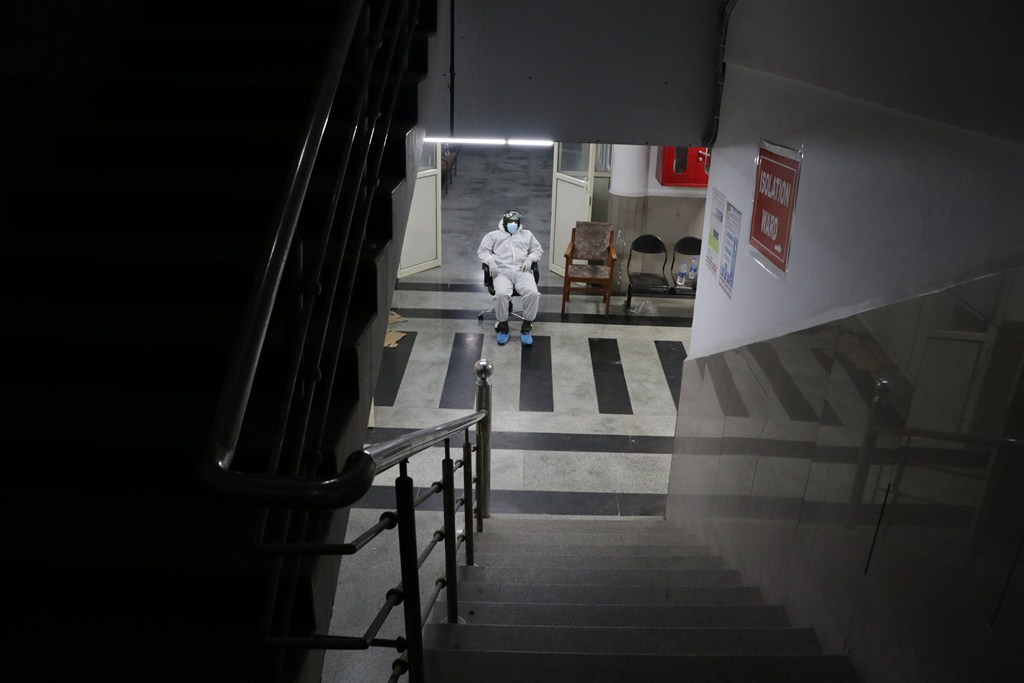
They were heading towards the NIT campus turned quarantine center for another patient. I was environed by fright the moment I stepped into the ambulance but somehow managed to overthrow my fear and clicked another photograph of the person who was also a Covid positive, sitting right next to me.
When I reached the JLNM hospital, I saw my father standing and waiting for me. It was an outburst of emotions seeing my father after a long time and not being able to hug him due to the contagion.

I managed to control myself. My father handed me over a blanket and a pillow and said: “Stay strong and firm as you know whose son you are, this too shall pass.”

The hospital management noted my name and contact number, and took me to a ward. There were 26 patients there and I was the twelfth one.
Beds were arranged with half a meter distance between two beds. I placed my bag next to a desk in one corner of the ward and occupied the bed that was arranged adjacent to the desk. I unfurled the blanket on the bed and placed the pillow at the headrest.
I initiated an introductory interaction with the patients there. I had reached the hospital at around 4:30 pm. Dinner was served to us at night. The way we were served dinner was quite immoral.
Despite the fact that the workers were dressed in PPEs, they placed our food on the floor outside a hall and made a call to take it from there. I quite despised the way they treated us.
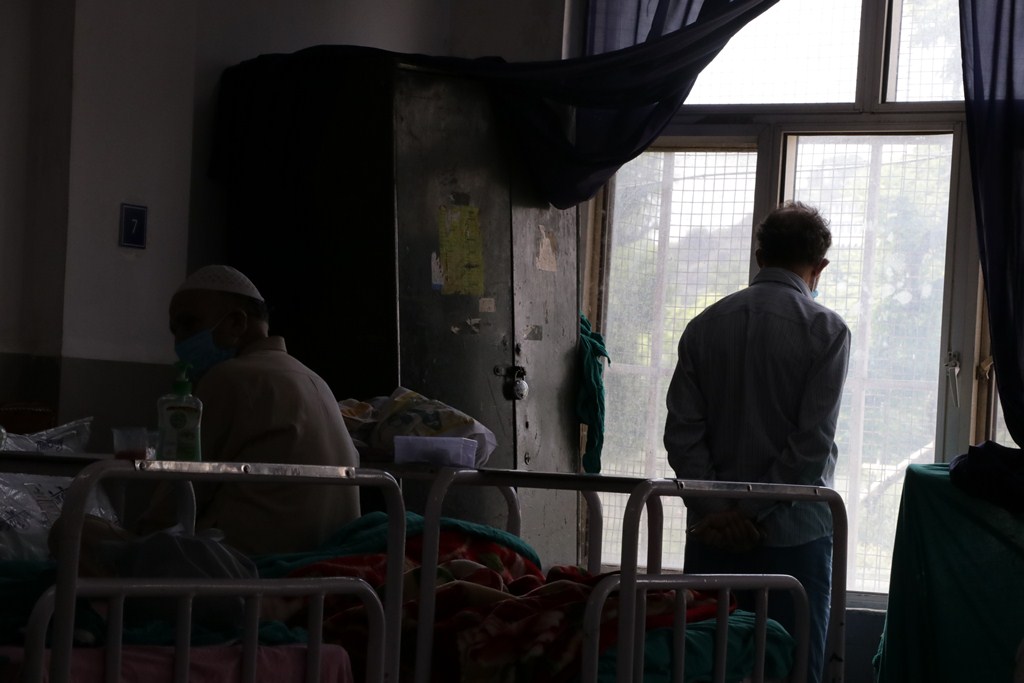
The next morning I wake up at 8 am. We were served tea at 9 am just the way the dinner was served last night.
Some workers visited our ward at around 12 pm and gave us all 2 face masks each. Workers bring us our lunch at 1:30 pm. It was also served in the same disrespectful manner. Their apathy and immorality cringed me to the core.
Amidst all the repulsive situation, one fine man who was a patient himself proactively used to serve food to all the other patients.
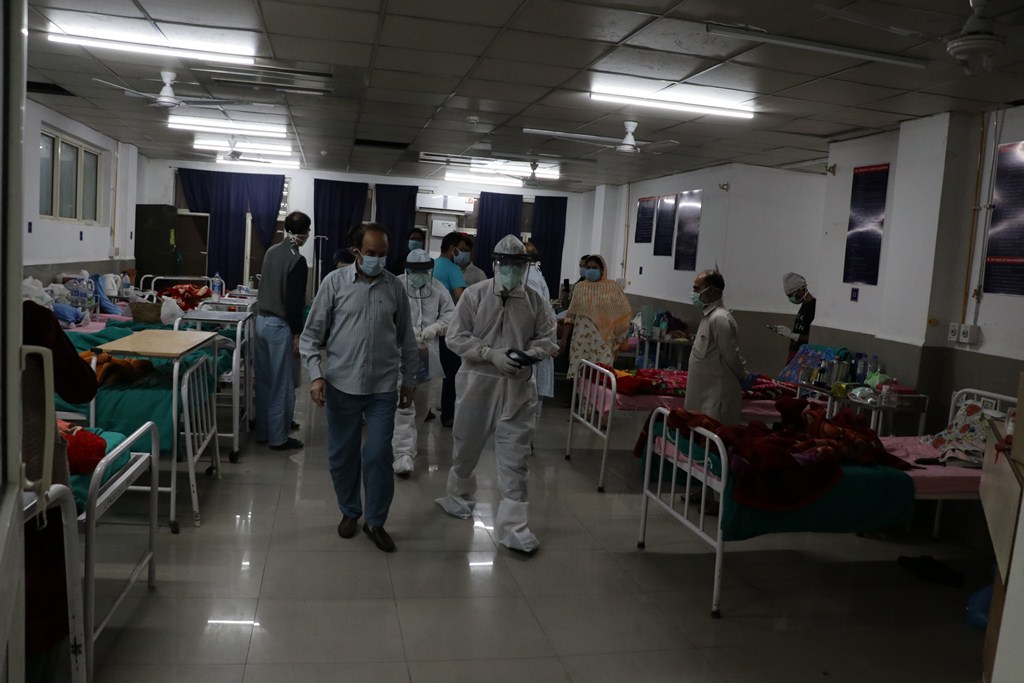
Many of the patients claimed that their test results were false-positive. The surmise might have precipitated primarily because of them being asymptomatic all that while. The dismal situation prevailing was further aggravated by the insufficiency of washrooms.
A single washroom was being shared by 26 patients. I did not take a bath even once in my 2 weeks of the quarantine period and felt absolutely awful.

It had been 3 days already and not even a single doctor visited us.
On the fourth day, a patient who was symptomatic and comorbid turned serious. His condition deteriorated in between 6:30 to 7 pm and not even a single doctor was available or approachable.
I literally went on finding a doctor myself but couldn’t find one.
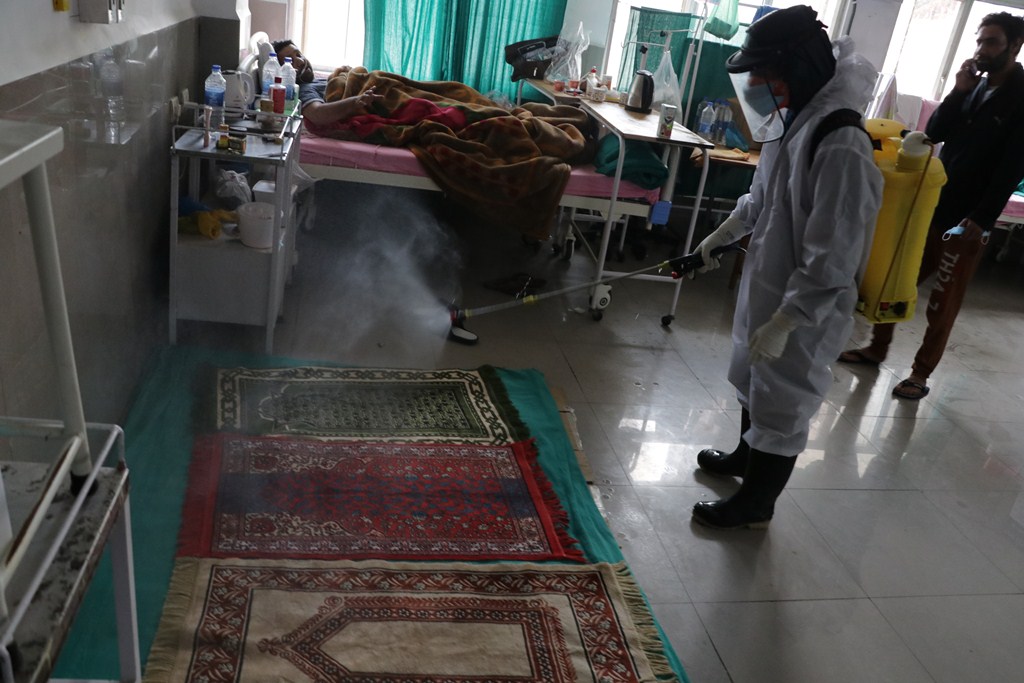
I made sure to record all the events that were taking place at that time, with one patient at the verge of death, in the dire need of medical support ultimately losing his life due to the non-availability of the doctor.
I instantaneously tweeted the video of that miserable situation and it went viral.
A Kashmiri journalist watched my tweet and contacted me. He immediately held a live session with me on Facebook and I explicitly stated all that I had experienced in my 4 days stay at the quarantine center.
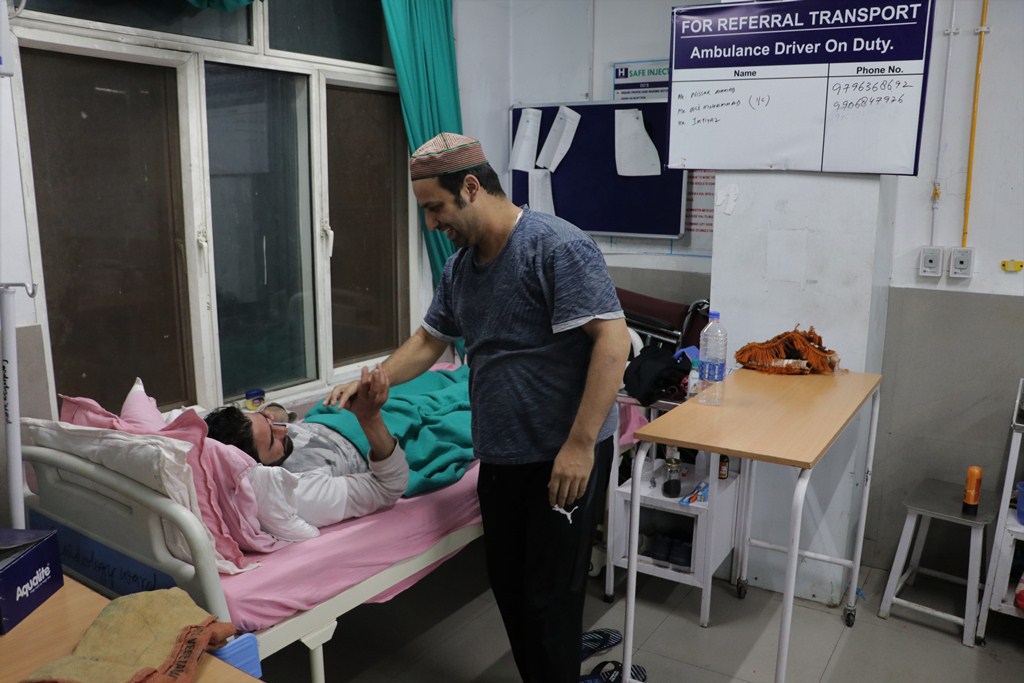
After a short while, some workers came with a disinfectant spray and sprayed us all and the ward. I was extremely sad. The bereaved son of the deceased was also there with us. The old man’s burial was done later that night. I sat with his son to comfort him.
Then, one physician, Dr. Zubair visited us. He seemed to be a nice doctor. I discussed with him the incidents that occurred and also took the permission of documenting my isolation days from the HOD and started documenting my life on the same day.
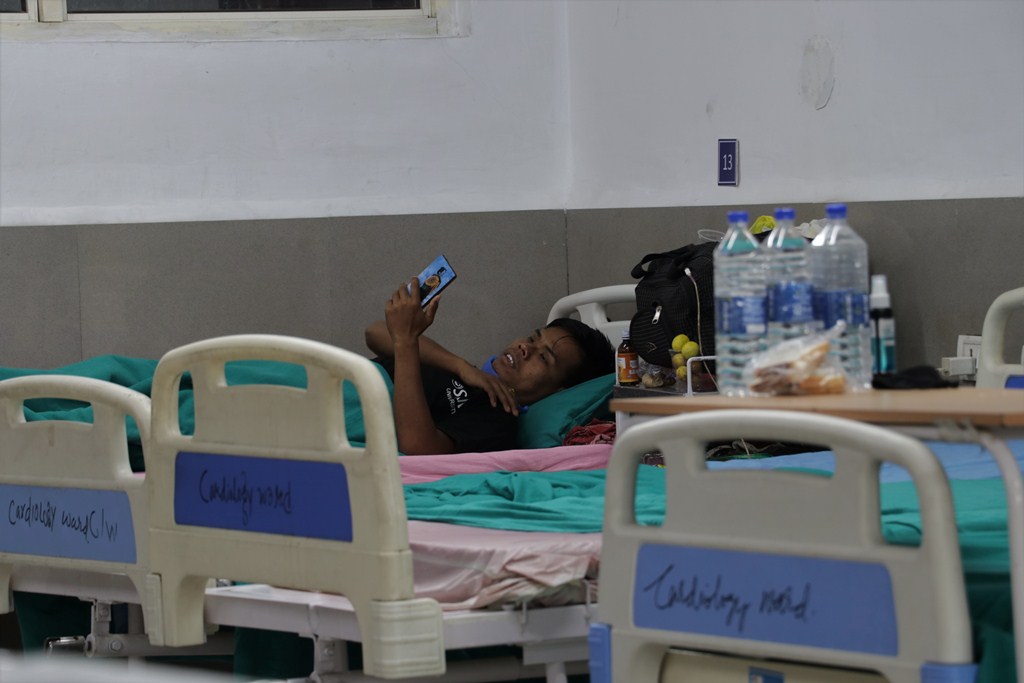
Things drastically changed from the very next day.
It was all because of that one tweet that went viral and the situation turned out in the best of our interests. The workers who used to leave food on the floor outside the ward started serving us the food in a well-mannered way. The menu of the food also got improved a great deal.
Dr. Zubair gave me his contact number and advised me to share the code blue situations with him. Not just that, whenever any patient presented with any symptom, I used to communicate that to him. He would prescribe medicines accordingly that I used to arrange with the help of the staff.
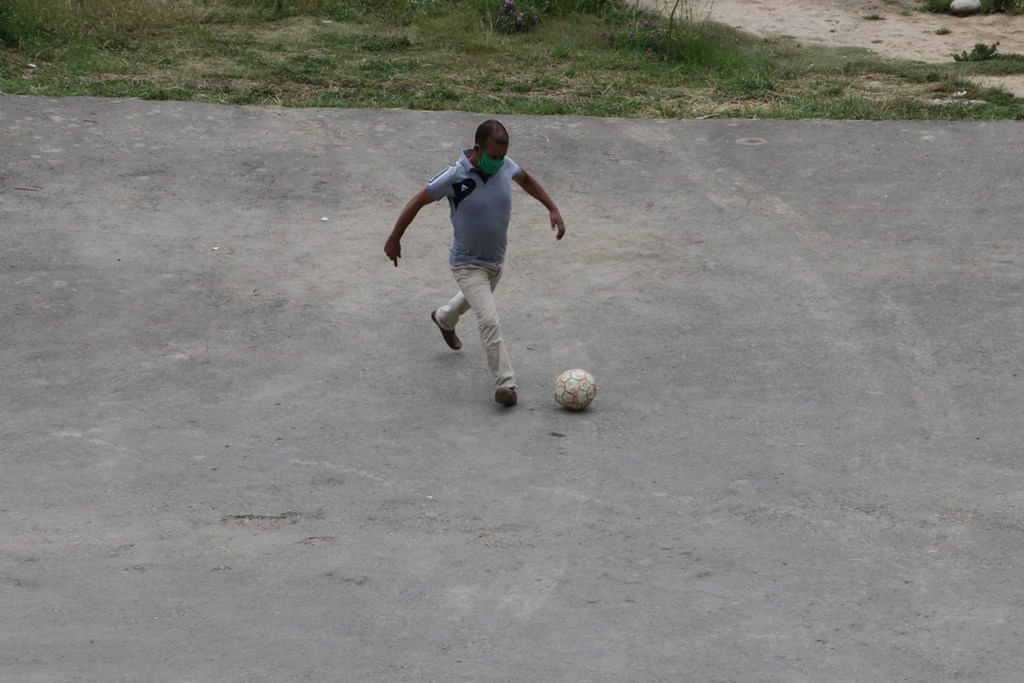
As I was asymptomatic, I relied on immunity boosters — mostly vitamins, tonics, lemons — with compliance and instilled the same habit in the rest of the patients around me.
Apart from all these remedies, I used to treat on dry fruits such as almonds, cashew nuts and prunes. One more habit that I observed religiously was consuming warm water.
Amid that routine, I kept on documenting all that I experienced. My camera captured all the moments and an avalanche of memories was created and preserved.
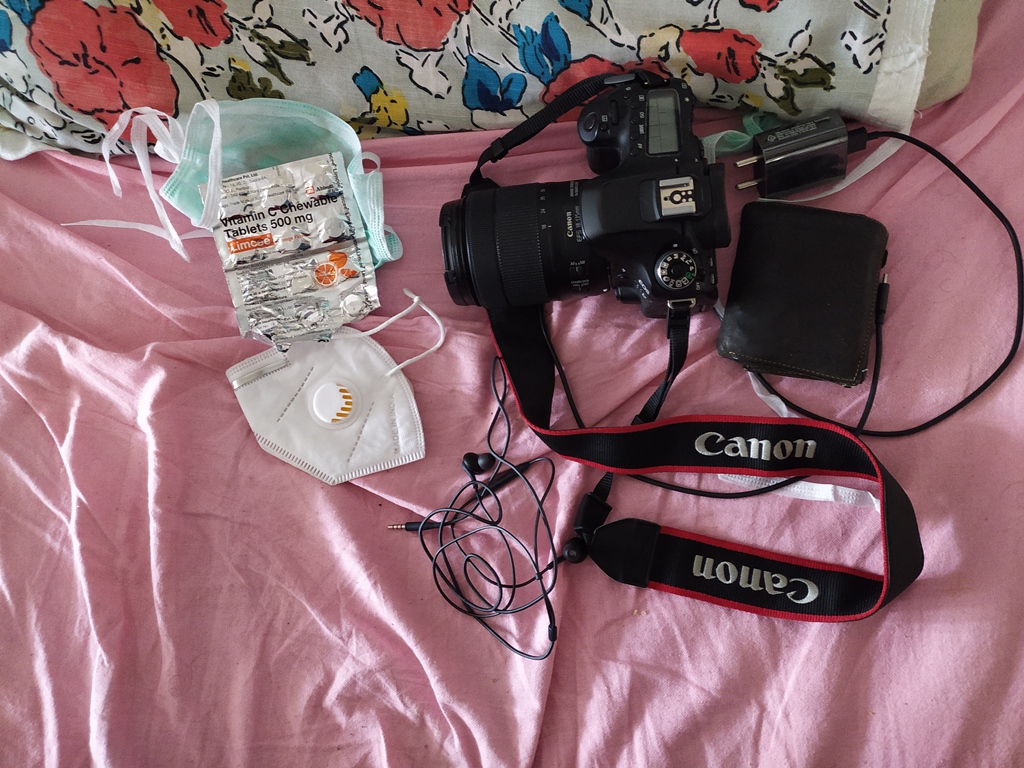
Many things and people caught my attention. My inquisitive and empathetic nature has always helped me in performing my work appropriately. I was driven by my predilection for philanthropy and conversed with workers and security guards there.
That is how I got to know that some of them had not been to their homes for 3 months at a stretch and not just that, their salary was not at all enough to support their living. I was greatly moved by their plight.
One of the reasons for documenting their miseries was to bring forth their denied rights. Government must pay heed to their sufferings. They work hard by renouncing their own comfort in order to serve us and protect our lives.
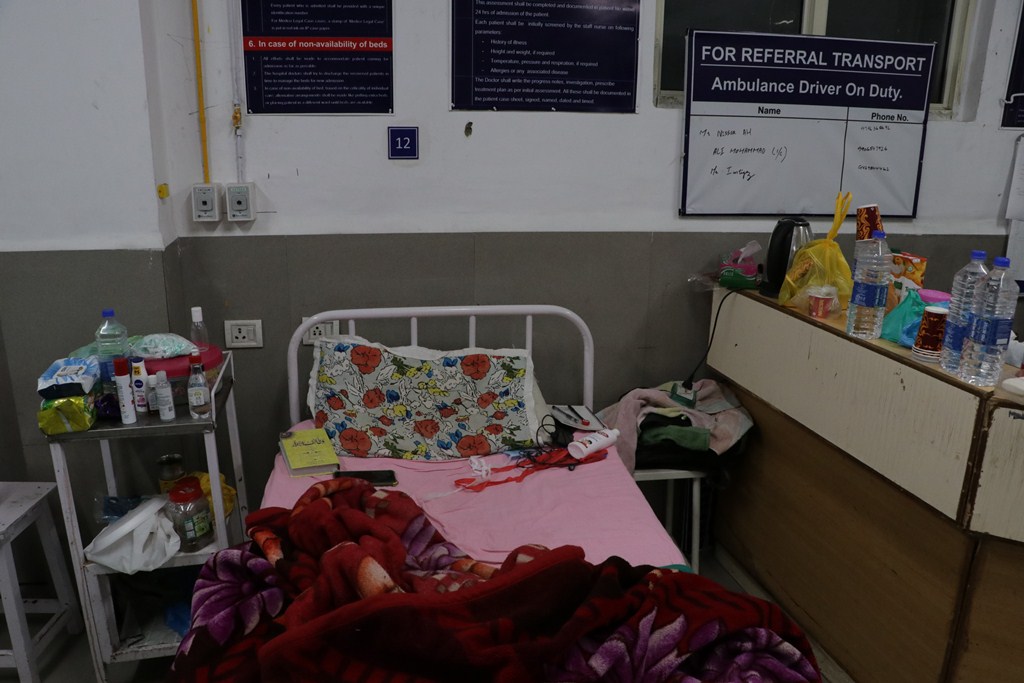
Finally, the long-awaited day arrived when I got tested again.
I made sure to not let them take the sample from my right nostril due to the past unpleasant experience. The results came out negative the very next day.
A sense of relief and happiness encapsulated my soul. I was advised 14-day strict home quarantine. My family rejoiced my return. I was extremely delighted to see my parents.
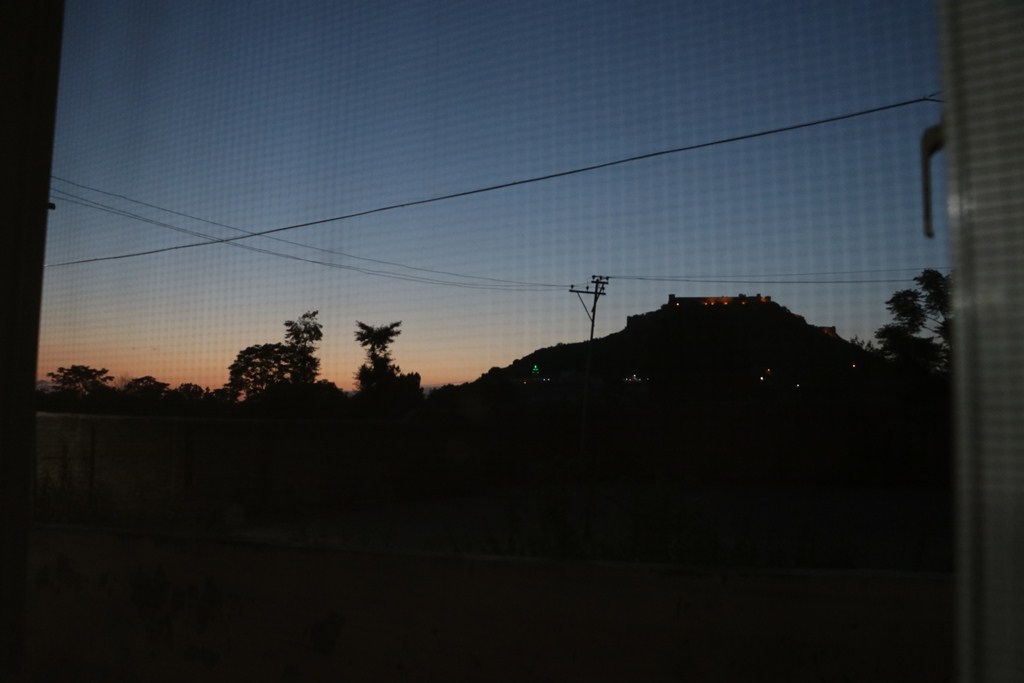
After the 14-day-long home isolation, I went to visit my maternal aunt. Now I knew what freedom felt like. From the 16th day, I resumed my work. I actually felt the stigma attached to the pandemic.
Despite knowing that I have recovered, some people literally abandoned meeting me or got distant the moment they saw me heading towards them. It was a distasteful experience.
I’m sure many other COVID survivors must’ve been through the same experience. And that’s why I believe we should fear the disease, not the survivor.
Mountain Ink is now on Telegram. Subscribe here.
Become Our Ally
To help us strengthen the tradition of quality reading and writing, we need allies like YOU. Subscribe to us.
Adil Abass is a visual storyteller based in Kashmir. He has done Master’s Degree in Journalism and Mass Communication and was trained from AKS School of Photography run by ace Kashmiri photojournalist, Showkat Nanda.







































